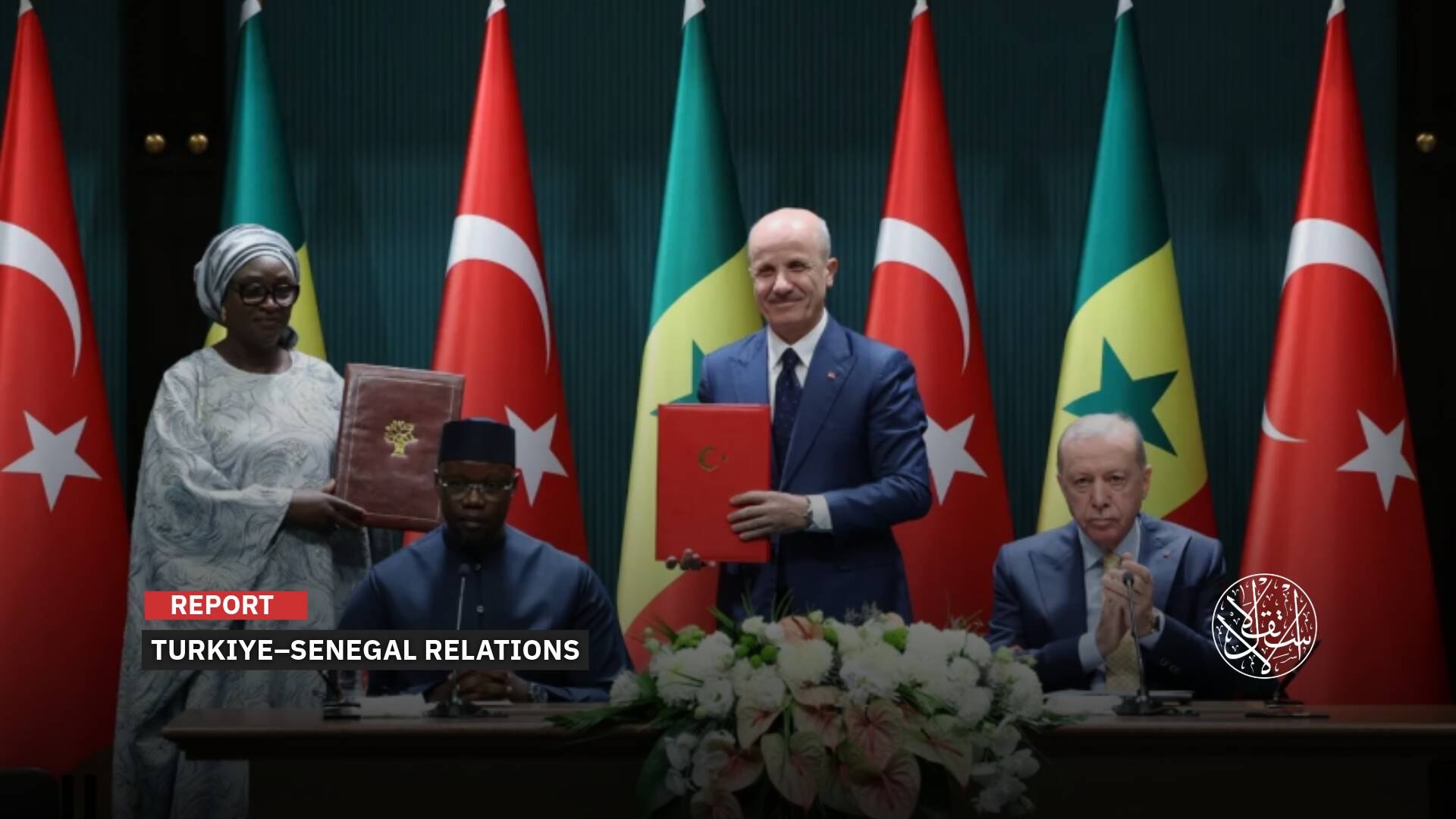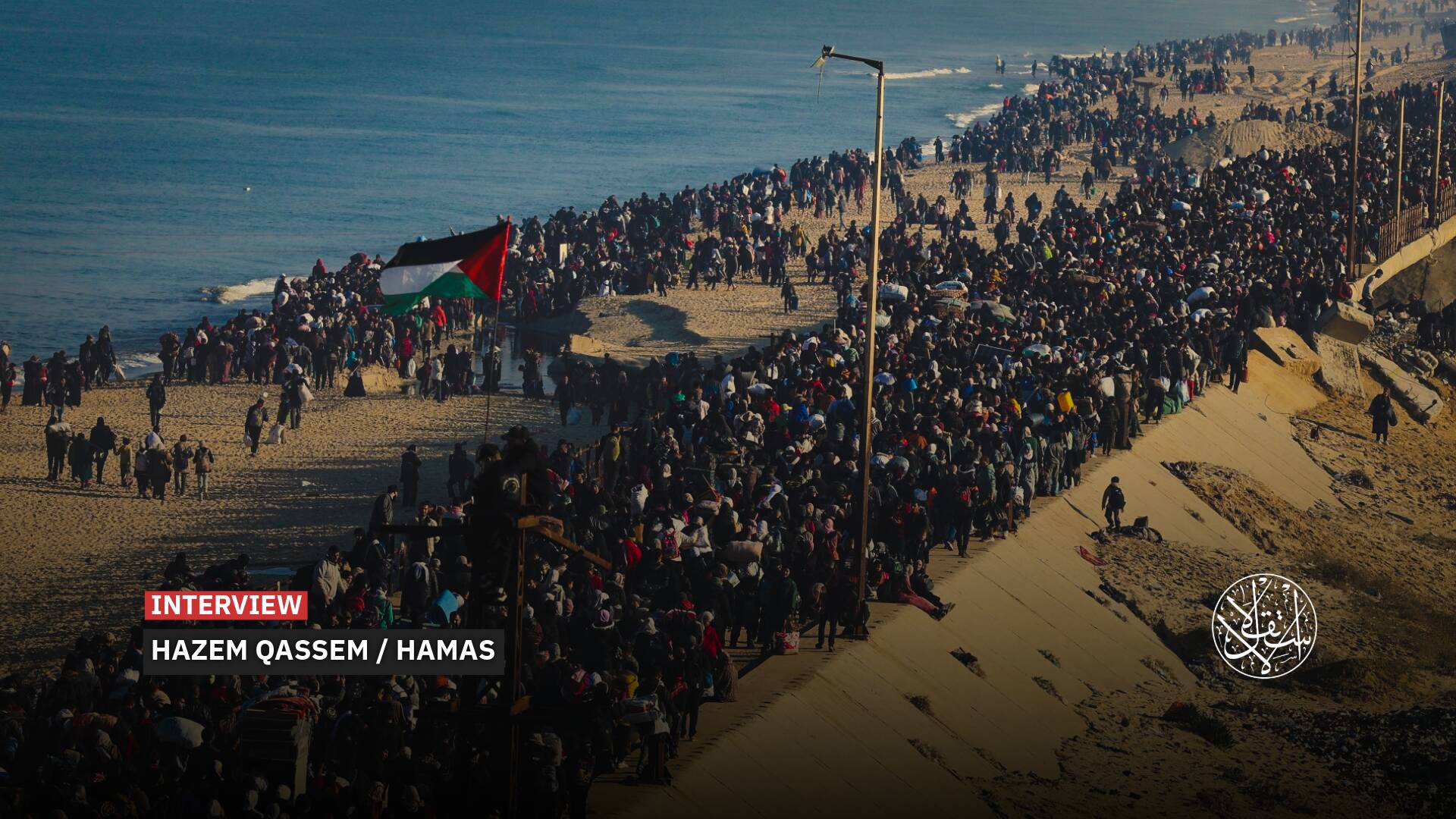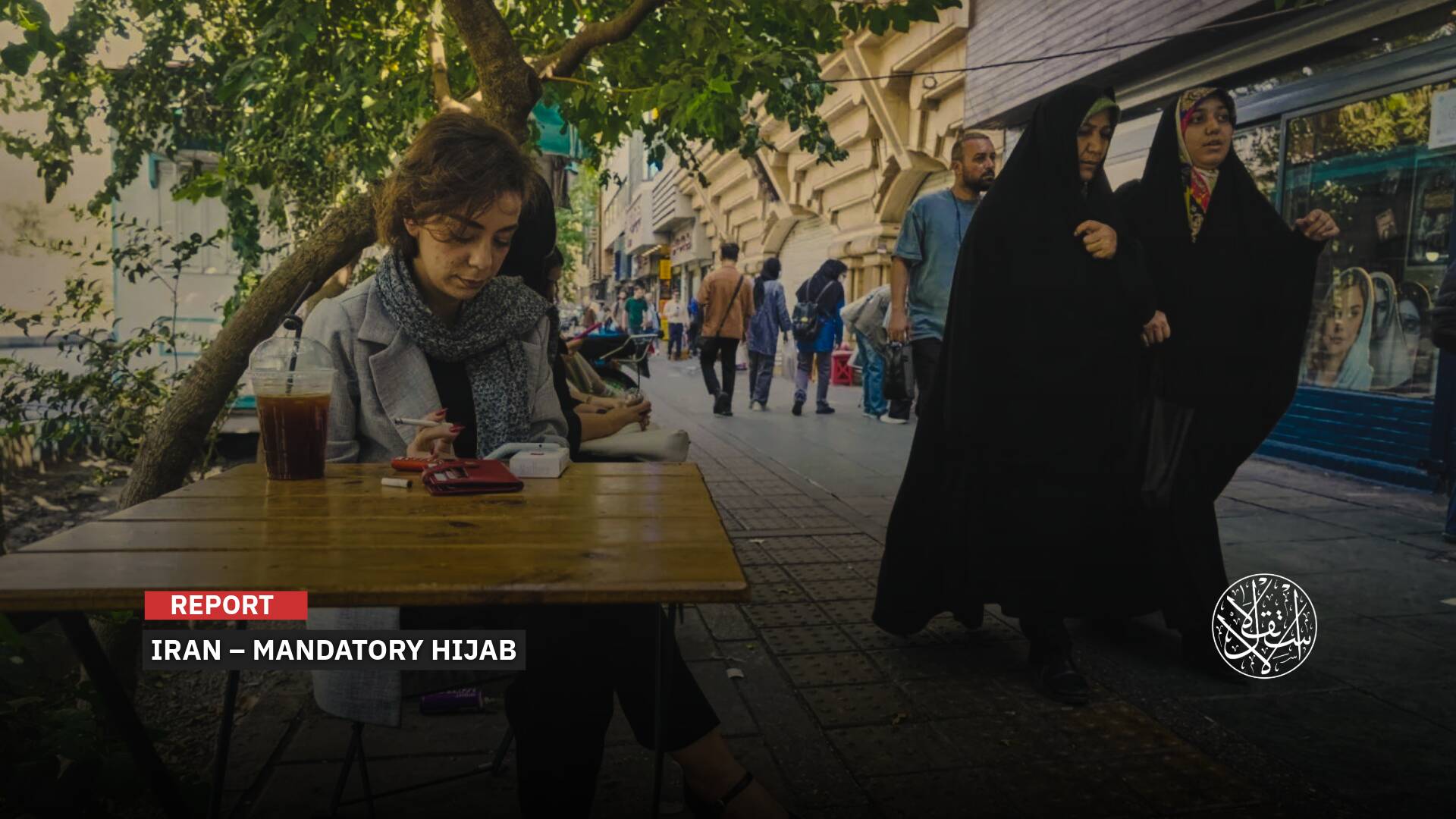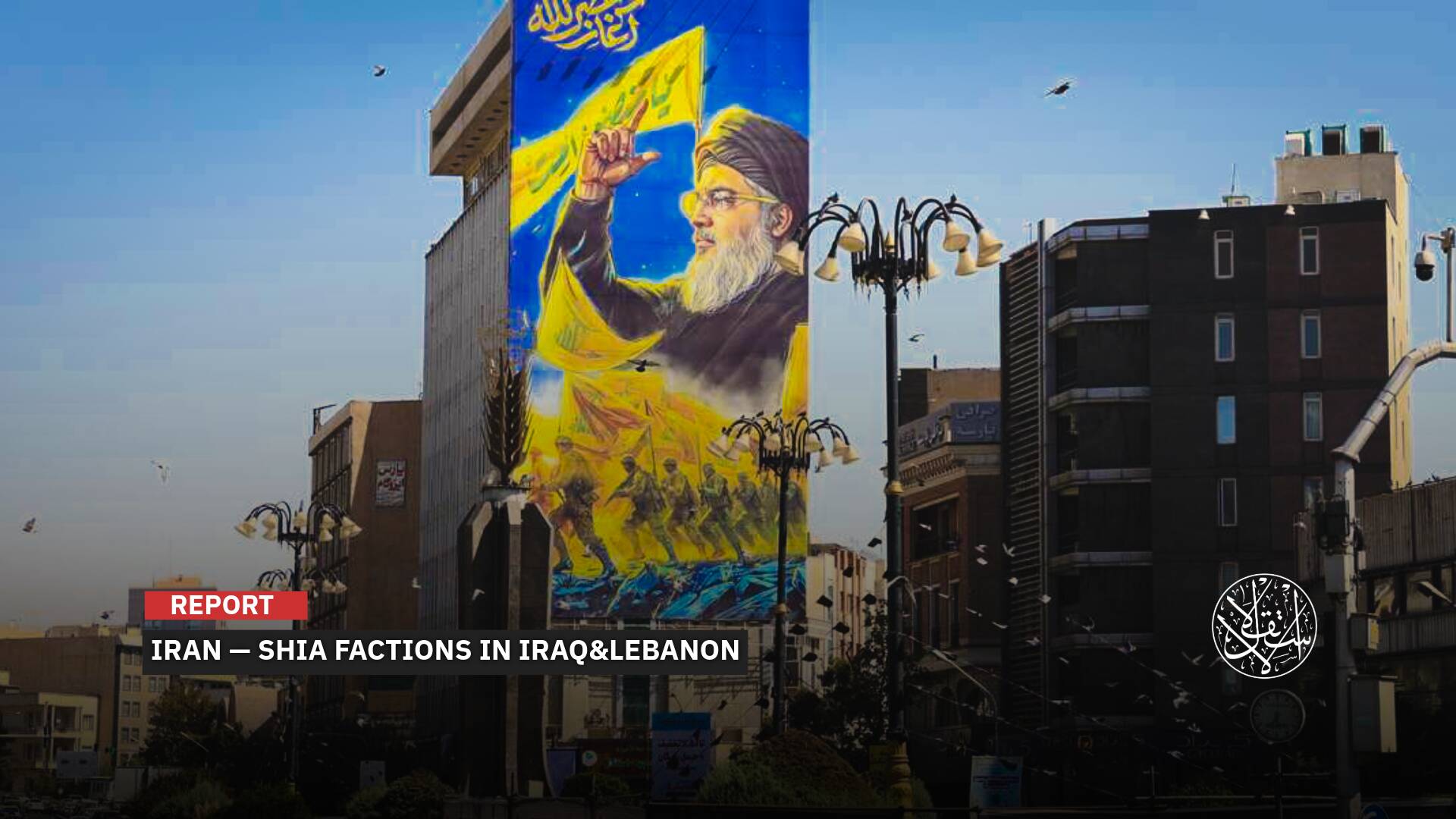U.S. Extends Syria Sanctions as Economic Struggles Deepen

There is no longer any justification for imposing sanctions on Syria's state institutions.
Just four days after the fall of President Bashar al-Assad's regime, the U.S. House of Representatives convened and decided to extend the economic sanctions imposed on Damascus since December 2019 under the Caesar Act, prolonging them until 2029, despite the presence of a new government.
The December 12th decision was part of a broader extension of the National Defense Authorization Act, which includes the continuation of the Caesar Act sanctions.
The move raised eyebrows and concerns, as the law was originally designed to target Assad's regime, but has now been renewed against the newly-formed government of the opposition.
The lack of clarity regarding the motivations behind the decision has sparked questions: Is this a form of leverage aimed at the new government to secure U.S. interests? Or is it a bargaining chip to shape the future of Syria through negotiations with the country's opposition?
In any case, the sanctions represent a significant hurdle for the new government, which is grappling with empty coffers and a crumbling economy.
The removal of these sanctions would be crucial for easing Syria's import needs and launching a new phase of reconstruction and development. As it stands, their continuation will only exacerbate the economic challenges facing Syrians.

The Story of "Caesar"
As the atrocities committed by Bashar al-Assad's regime escalated, and with the U.S. intent on economically isolating Syria due to its alignment with Iranian and Russian influence, Washington turned to a series of laws to impose economic sanctions on the Syrian government, including the Caesar Act.
The U.S. and several Western countries imposed a range of sanctions targeting al-Assad personally, members of his family, senior regime figures, and entities affiliated with him.
However, three sanctions imposed by Washington on Damascus are considered the most significant: the Caesar Act, and the Captagon I and II laws.
The story of "Caesar" began in 2014, when a former Syrian military photographer, using the pseudonym "Caesar," revealed images he had taken between 2011 and 2013 of bodies that had been subjected to torture in Syrian detention centers.
The photographer fled Syria with 55,000 "horrifying" photographs—four pictures per victim—each showing brutal signs of torture, with many of the bodies marked with numbers.
Some corpses were missing their eyes, and most were either naked or dressed only in undergarments.
The 55,000 images, showing 11,000 detainees who had been killed during torture, were leaked by Caesar and later displayed in U.S. Senate hearings.
This led directly to the drafting of the law that imposed economic sanctions on al-Assad's regime.
These images prompted the passage of a U.S. law in 2019 called the Caesar Syria Civilian Protection Act, which came into effect in 2020.
The law imposes economic sanctions on Syria and calls for legal action in Europe against those who had previously collaborated with Bashar al-Assad's government.
The law, which was unanimously approved by the U.S. House of Representatives, was named after Caesar and officially known as the Caesar Syria Civilian Protection Act.
It mandates sanctions on the Syrian government, which extend to state-owned enterprises.
The sanctions specifically targeted those facilitating al-Assad regime's acquisition of goods, services, or technologies that supported the regime’s military activities or industries related to aviation, oil, gas production, construction, and engineering.
The law also imposed sanctions on Syrian intelligence and security agencies, the Central Bank of Syria, and entities operating in four critical sectors: oil and natural gas, aviation, construction, and engineering.
The law further sanctioned any entity that supplied aircraft or aircraft parts to Syrian airlines, or participated in construction and engineering projects controlled by the Syrian regime(as it existed), or contributed to Syria’s energy industry.
One of the main goals of the Caesar Act was to increase the political, economic, and financial isolation of ousted Bashar al-Assad and punish his allies, aiming to pressure him into accepting a political resolution to the Syrian conflict based on UN Security Council Resolution 2254.
According to the U.S. State Department, the sanctions were designed to prevent Bashar al-Assad and his regime from misusing the international financial system and global supply chains to continue terrorizing the Syrian people.
The Caesar Act marked a significant escalation in the economic war the United States waged against Bashar al-Assad’s regime, due to both its comprehensive nature and its threat to penalize any external actor contributing to the regime’s reinforcement.
Why the Extension?
Many Syrians were taken aback by the U.S. decision to extend sanctions on Syria despite the fall of Bashar al-Assad’s regime.
They argue that these sanctions had long acted as a barrier to economic reforms and had hoped that their removal might improve the country’s deteriorating economic conditions.
One possibility, some suggest, is that the U.S. aims to "extort" the Syrian revolution or use the sanctions as a bargaining tool to intervene in the formation of Syria’s new government.
This is despite the fact that direct talks have begun between the U.S. State Department and Hayat Tahrir al-Sham (HTS), as Secretary of State Antony Blinken stated on December 16, 2024.
The "ambiguity" of the U.S. stance may be driven by an intent to extort the new regime, while simultaneously advancing Israeli interests.
This, analysts suggest, is being pursued through the destruction of Syria’s weapons and the occupation of nearly 500 km of southern Syria.
Analysts point to a convergence of American and Israeli objectives: to bend the new regime’s will, extracting concessions on issues such as refraining from antagonizing “Israel,” and possibly normalizing relations with it.
This strategy is seen as exploiting both the sanctions and Syria's military vulnerability to “Israel,” in addition to using U.S. economic sanctions as a tool of leverage.
This ambiguity and coercion were further compounded by the U.S. State Department's announcement on December 18 that the $10 million reward for information leading to the capture of Ahmad al-Sharaa (al-Julani), leader of the new Syrian government, "remains in effect."
The extension of sanctions came just as Syria's interim Prime Minister, Mohamed al-Bashir, confirmed upon taking office that "Syria is facing a dire financial situation."
In a December 19 interview with the BBC, Ahmad al-Sharaa urged the West to lift the sanctions and reconsider the designation of Hayat Tahrir al-Sham, emphasizing that these sanctions were aimed at the former regime, and that it is unjust to treat the victim and the perpetrator in the same manner.
“The top priority was rebuilding Syria, for which, the lifting of international sanctions was essential,” Ahmad al-Sharaa told a group of foreign journalists that included France 24’s Wassim Nasr.
He further explained that the economic sanctions were imposed on the "executioner" of the Syrian people, referring to al-Assad.
“We Syrians, the victims, are being punished for the acts of our executioner, who is no longer with us,” he said. “We ask for the international community's help in prosecuting the Assad regime's criminals and recovering the money stolen from Syrians.”
These sanctions have had a profound impact on Syria’s economy, trapping it in a web of restrictions and depriving it of vital resources.
This has further exacerbated the hardships faced by citizens and strained the national economic infrastructure, deepening the country's financial losses—a situation likely to continue should the sanctions be extended through 2029.
“As we see Syria move in that direction and, in a Syrian-led and Syrian-owned process, take these steps, we in turn will look at various sanctions and other measures that we’ve taken and respond in kind. But the most important thing is this action […]This can’t be the decision or the event of one day. It has to really be sustained over time,” Secretary of State Antony Blinken said in response to sanctions.
This approach ties the possibility of easing sanctions to leveraging concessions from the new regime, ensuring that it suffers under sanctions just as al-Assad’s did.
The Caesar Act has wreaked havoc on Syria’s infrastructure and economic facilities, causing widespread devastation.
Many remaining factories and industrial facilities have shut down, crippled by a lack of essential raw materials, which were previously imported with U.S. dollars from abroad.

530 Billion Dollars
A study conducted by the Syrian Center for Research Studies (a non-governmental organization) and published in late May 2020 estimated that the Syrian economy had incurred losses of approximately 530 billion dollars between 2011 and 2020 due to the Caesar Act.
This figure is nearly 9.7 times the country's GDP in 2010, with projections suggesting these losses could double in the coming years.
Official statistics reveal that more than 90% of Syrians now live below the poverty line, according to UN estimates. Key sectors such as oil, manufacturing, and tourism continue to suffer, crippled by years of conflict.
The majority of Syrians remain employed in the decaying public sector, where the average monthly salary is around 300,000 Syrian pounds (roughly 119 U.S. dollars).
The new government has promised to raise salaries by 300%, though the promise remains unfulfilled.
The Economist, on December 19, 2024, highlighted Syria's urgent need for basic goods, including oil—which Iran once supplied up to “80,000 barrels of free oil per day.”
That oil flow has since stopped.
While Syria could buy oil from the spot market, doing so requires scarce foreign currency. The country’s foreign reserves now stand at just $200 million, down from $17 billion before the war.
It is widely believed that Bashar al-Assad “and his cronies are thought to have stolen billions,” according to the Economist.
American estimates suggest that the renewal of the Caesar Act is driven by concerns that lifting the sanctions could benefit numerous al-Assad loyalists listed under the Act.
If the law were revoked, these individuals would stand to gain from the sanctions being lifted.
However, many Syrians are demanding the immediate removal of the Central Bank of Syria from the blacklist to allow merchants to resume trade, particularly as Lebanon’s banking system, once a vital lifeline, has turned into a black hole in the financial network, according to their assessments.
“Republican and Democratic U.S. senators say it is too soon to consider lifting sanctions on Syria following the removal of President Bashar al-Assad, an indication that Washington is unlikely to change its policy any time soon,” according to Reuters.
Their reasoning is rooted in concerns over whether opposition factions will uphold human rights, guarantee freedom of speech and religious belief, avoid attacking minorities, and hold free elections.
Yet, other lawmakers argue that it is now imperative to support Syrians after al-Assad’s rule, calling for American waivers and permits to stimulate economic development and foreign investment.
This, they argue, could provide the new Syrian government with the financial resources needed for reconstruction and the creation of government institutions.

‘Pull the Rug Out From Under Syria’
The U.S. stance on Syria and its new leadership remains murky and ambiguous, particularly with regard to the continued enforcement of the Caesar Act, which continues to strangle the Syrian population.
“The United States is dropping a $10m reward for the arrest of Syria’s new leader, Ahmed al-Sharaa, after an uprising that toppled President Bashar al-Assad,” according to Al-Jazeera.
While the U.S. State Department has acknowledged direct communication with Hayat Tahrir al-Sham (HTS), a group classified as a terrorist organization by Washington, it continues to label both al-Sharaa and HTS as "terrorists" — despite the fact that HTS played a significant role in dismantling al-Assad's regime and liberating large parts of Syria.
Secretary of State Antony Blinken said “American officials have been in direct contact with the terrorist-designated rebel group that led the overthrow of Syrian President Bashar Assad,”
“Our message to the Syrian people is this: We want them to succeed – and we’re prepared to help them do so,” Blinken added.
Earlier, in an October 13, 2024 press conference, prior to the collapse of al-Assad’s regime, Blinken reiterated the U.S. position of opposing the reconstruction of Syria until there is irreversible progress toward a political solution.
This policy has since led to increasing calls from U.S. lawmakers and experts to lift the sanctions.
American media outlets and think tanks have highlighted that Washington’s continued refusal to ease sanctions on Syria seems akin to “pulling the rug from under Syria’s feet,” making it harder for the country to revive its economy just when it needs it most.
The Intercept, an investigative U.S. news site, pointed out that the reconstruction of Syria and its recovery from the ashes of a devastating civil war—an endeavor that will take years—could be expedited by the West, should it lift the sanctions imposed on "New Syria," which were originally targeted at Bashar al-Assad’s regime.
The website further explained that the only way to help Syrians, who are desperate to start rebuilding their country, is by “ending the U.S. sanctions.”
Analysts and lawmakers argue that lifting the sanctions could begin to provide much-needed relief and boost Syria’s economy, but the path to this relief passes through Washington—specifically, Congress and President Joe Biden.
Human rights advocates and experts have called for the immediate lifting of sanctions on Syria, even before the U.S. Senate and President Biden officially approve the extension of the sanctions.
“Not considering sanctions relief right now is like pulling the rug out from under Syria just when it’s trying to stand,” Delaney Simon, a senior analyst at the International Crisis Group said.
“I can’t overemphasize the intensity of the effect of the sanctions on the Syrian economy.”
“Congress had a chance this month to end the harshest sanctions against Syria simply by letting them expire. The Caesar Syria Civilian Protection Act of 2019 is supposed to sunset on December 20, but Congress is committed to keeping it in force,” Simon added.
Simon emphasized that labeling both the Syrian state and the revolutionary factions now leading the country as “terrorist organizations” creates massive obstacles for trade and economic growth in Syria.
He also noted that President Biden could easily waive some of the sanctions, given that the fall of Assad meets the specific conditions set out in the Caesar Act.
Simon warned that there is a “chilling effect” of the sanctions on private Syrian commercial entities, and although humanitarian aid has continued, it is insufficient to create a viable economy on its own.
Simon believes that the United States and other governments imposing sanctions will eventually develop a plan to lift these measures. As such, he urges the U.S. to take immediate action by issuing a general license that allows for business activities—not just humanitarian aid—in Syria.
“We don’t know exactly what the future of Syria is going to be,” said Robert Ford, who served as the ambassador to Syria under President Barack Obama, on Thursday. “We don’t know if it’s going to be a state that respects the rights of minorities, which was one of the conditions laid out by the Department of State yesterday for restoring relations.”
“But it’s still early in the game,” he went on. “It seems to me that a gesture now of eliminating some sanctions, and in particular those targeting the construction sector would be, I think, a very good gesture.”
According to Al-Estiklal, Ford stated that the argument suggesting sanctions were secondary to Syria and had no impact on Syrian civilians was "inaccurate."
He explained that sanctions led to delays in construction projects and a decline in housing construction for the general Syrian population, which also resulted in fewer jobs and lower wages.
Ford also highlighted how sanctions on energy products and the ban on selling oil and gasoline sales to Syria have driven up energy prices, directly affecting the public.
This has prompted Congressman Joe Wilson and Brendan Boyle to write a letter to “the Biden administration [to] ease some of the sanctions on Syria. The lawmakers called on the administration to keep sanctions on former officials with the Assad government, but to suspend other parts of the Caesar Act — specifically those that blacklisted whole sectors of the economy and blocked reconstruction.”
In their letter, the lawmakers emphasized the need for a “deliberate and phased approach is required to unwind sanctions and export controls against Syria,” as reported by Reuters.
Similarly, the Syrian Network for Human Rights, based in The Hague, wrote a letter to the U.S. administration on December 16, calling for the immediate removal of all sanctions on Syria.
“In light of the major shift in the Syrian landscape, however, with the collapse of the Assad regime on December 8, 2024, SNHR sees that there is no longer any justification for sanctions against state institutions as a means to deter and punish the regime and to bring about the enactment of political change, which has now been achieved.”
“SNHR sees that there is no longer any justification for sanctions against state institutions as a means to deter and punish the regime and to bring about the enactment of political change, which has now been achieved.”
“Continuing to impose these sanctions now that the former regime is gone may turn them from instruments for accountability into obstacles standing in the way of Syrian recovery,” as mentioned in SNHR.
Sources
- Syria Sanctions
- Syria not a threat to world, rebel leader Ahmed al-Sharaa tells BBC
- Syria’s de facto new leader Ahmed al-Sharaa calls for lifting of sanctions
- Everyone wants to meet Syria’s new rulers
- Keeping Sanctions in Force Would “Pull the Rug Out From Under Syria”
- SNHR Calls for Lifting All Sanctions Imposed on Syria Following the Fall of the Assad Regime











